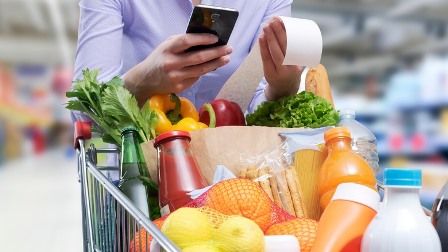
SA retailers are sticking to higher prices, fewer discounts on offer
By: Bloomberg
South African retailers are offering fewer discounts and passing on rising prices to shoppers even after consumer confidence on the continent’s third-largest economy remained subdued for 18 straight quarters.
Shoprite this week reported a 15% jump in revenue, with Africa’s biggest grocer mirroring improved sales by peers including Mr Price and Clicks Group. Pepkor, the continent’s largest clothing retailer, also announced better growth and pointed to a marked improvement in full-price sales.
South African retailers are joining overseas stores such as Marks & Spencer in avoiding offering discounts.
That’s because of the realisation that pushing volumes can result in poor margins and may reduce revenue. Consumer confidence in Africa’s most-industrialised economy has been subdued since late 2019, and in December slipped to its lowest fourth-quarter reading in more than two decades as inflation and higher interest rates ate into disposable income. The move to resist outright bargains is a “trend we are seeing globally where retailers are aiming for the first price to be be right price,” and only discounting at the end of a season, said Charles Allen, an analyst at Bloomberg Intelligence.
The gauge of local retail stocks has gained 4.3% in the past six months compared with the 2.6% drop in the benchmark FTSE/JSE Africa All Shares Index. Beyond dealing with strained consumers, retailers are spending on buying diesel to fuel generators so that they can continue operating during recurrent nationwide electricity outages. They’re also grappling with how to maintain enough stock to avoid supply disruptions because of delays at the nation’s backlogged ports.
“Consumers are under a tremendous amount of pressure and it’s hard to coax people into stores,” said Alec Abraham, an analyst at Sasfin Securities, in Johannesburg.
“So retailers are focusing on selling at a better, full price.”
But the outlook may be improving with expectation that borrowing costs will fall in the second half the year. Investors may also re-rate retailers after this year’s elections, said Ya’eesh Patel, an analyst with SBG Securities.The vote is likely to be the most competitive since the end of white-minority rule in 1994.
South Africans expect their finances to improve this year, according to a survey of 1 700 people conducted by HSBC.“While still broadly downbeat on the economic outlook, survey respondents’ views on their own financial outlook look slightly stronger,” Nick Webster, HSBC’s head of research in South Africa said in a report. “Almost half of survey respondents expect an improvement in discretionary income, edging up from last year’s reading.”
News Category
- International retailers
- On the move
- Awards and achievements
- Legislation
- Wine and liquor
- Africa
- Going green
- Supplier news
- Research tools
- Retailer trading results
- Supply chain
- Innovation and technology
- Economic factors
- Crime and security
- Store Openings
- Marketing and Promotions
- Social Responsibility
- Brand Press Office
Related Articles

Empowering South African households through gro...

SPAR shares practical tips to beat food inflation

South African motorists could be paying up to R...

Big VAT changes on the cards


